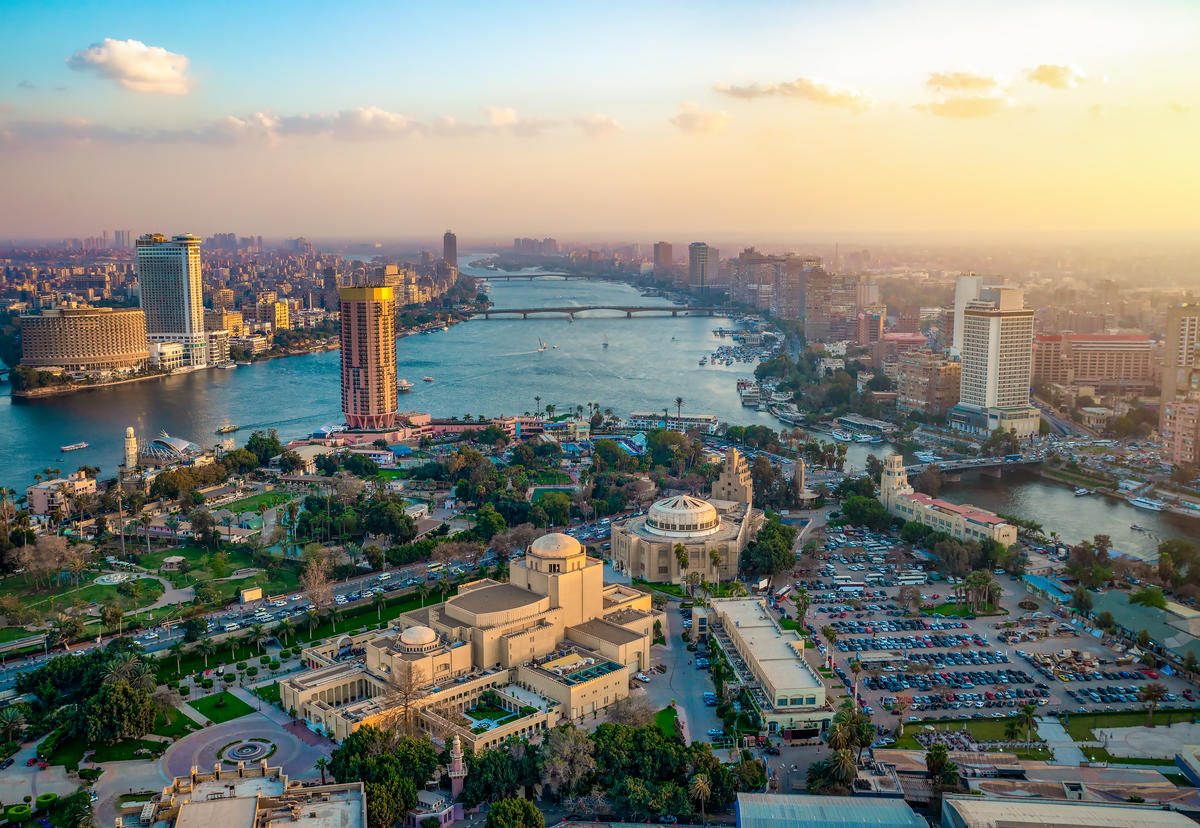Why Egypt’s Selection Matters
Egypt’s COP27 presidency places Africa and the developing world at the center of international climate action and comes at an important point in the future orientation of climate policy. The tension between developed nations and emerging markets has long been a feature of COP discussions, but has become more salient as the international community inches closer to missing the goal of limiting global temperature rise to 1.5 degrees Celsius. Achieving consensus is critical to sustained progress, particularly on climate. And ensuring the most climate vulnerable regions, such as Africa, have a leading voice at the table is an important next step.
COP27 will be the fifth hosted in Africa since the conference was inaugurated in 1995 and is an important opportunity to advance a climate agenda that encompasses the core concerns of Africa, and other emerging economies. Egypt is recognized as a leading climate voice and advocate for both Africa and Middle East interests. These regions are also among the most climate vulnerable, with economies and communities facing a daily impact of climate related crises. Egypt faces the challenge of aligning the agendas of developed and developing nations to work toward closing the gaps from COP26 and achieving progress in COP27, including advancing an agenda that addresses Africa’s most pressing climate concerns.
Bridging the Gaps – The Road to COP27
COP26 in Glasgow secured several notable outcomes. The Paris Rulebook (Article 6) was finalized, providing a critical framework for international cooperation on emissions reductions and outlining rules for international carbon markets. Over 200 nations signed the Glasgow Climate Pact, which recommitted nations to keeping alive the goal of limiting the global temperature rise to 1.5C above pre-industrial levels and created a framework for helping climate-vulnerable countries develop national strategies for climate adaptation. The launch of the Glasgow Financial Alliance for Net Zero (GFANZ) united 450 financial firms and more than $130 trillion in assets toward achieving the Paris Agreement’s net-zero goals.
The achievements at COP26, however, failed to deliver on many of Egypt’s and Africa’s core climate concerns. Developing nations, especially in Africa, have taken steps to move toward achieving their climate goals, but they feel the developed world has not held up its end of the bargain. To the dismay of the developing world, wealthier nations failed to meet the 2020 $100 billion climate finance target promised 13 years ago in Copenhagen to help climate-vulnerable nations mitigate and adapt to changing conditions and offset climate-related losses. The deadline was extended to no later than 2023, making COP27 an important midway point for keeping climate funding goals on track and an opportunity to devise a framework for the distribution of climate funds. Of funds already committed, funding for adaptation for the developing world accounted for only 25%, falling short of COP26’s desired goal of 50%.
At COP 26, African leaders warned that a rapid transition toward renewables is neither feasible, cost-effective, nor fair for Africa which still faces economic development and energy security challenges. Africa’s economic and energy security is closely linked to its vast reserves of fossil fuels, including 6% of the world’s natural gas reserves, and more than one hundred billion barrels of crude oil. Ensuring reliable sources of energy will be essential for many African nations to meet the growing electricity and energy demand of the continent’s growing population, which is expected to double to over 2 billion by 2050, and to power continued economic growth.
African leaders have argued for a phased transition toward renewables that factors in local conditions. To that end, at COP26 over 30 nations signed the Just Transition Declaration, including the U.S., UK, and various European nations, which provided preliminary commitments for ensuring energy transitions are socially fair and accessible—it could be an important platform to build on at COP27.
Egypt’s COP27 Agenda for Africa and the Developing World
Egypt will build an “Africa” COP27 platform that balances global climate action toward net zero with Africa-specific initiatives to ensure just energy transition for Africa’s climate-vulnerable countries. To do so, the Egyptian government has undertaken a number of bilateral and multilateral consultations with African and Arab leaders, private industry, civil society, and climate experts to understand and integrate the region’s respective priorities into the agenda-building process. Egypt has also developed an intensive roadmap for engaging a range of stakeholders across these lines of effort through a series of regional and international platforms, including the US-Egypt Climate Working Group, the Committee of African Heads of State and Government on Climate Change (CAHOSCC), and the Dubai-based MENA Climate Week.
A key goal will be balancing financial responsibility for the climate crisis and creating a framework for the deployment of climate finance and technology. In his speech at COP26, Egyptian President Abdel Fattah El Sisi underscored that the developing world’s implementation of their climate commitments is conditioned by the amount of support they receive. He also emphasized that overcoming the gaps between available funding and the obstacles developing countries face in accessing it will be a significant focus of COP27 for the developing world. One such initiative Egypt plans to launch is the “Just Financing” initiative at COP27, which would align Egypt’s Ministry of Environment, development partners, the United Nations, international finance institutions, and the private sector around a new climate financing framework for Africa.
Egypt is also expected to provide industry a stronger platform for participation. While business played an important role during COP26, many initiatives were criticized as “corporate greenwashing.” However, there can be no sustainable energy transition without the support and full participation of the business community. To date, some 700 of the 2,000 largest publicly traded companies globally, including Shell, Walmart, and Coca Cola, have pledged to meet the net zero goals of the Paris Accords, but there is still room for business to do more. Bringing industry and business fully to the table could pave the way for stronger commitments during COP27 and generate new opportunities for private-public partnerships.
It will be important to watch how the rest of the COP27 agenda comes together across key issues like climate adaptation, mitigation, technology transfer, and preserving biodiversity. One thing we can expect is that it will reflect African and emerging economy priorities.



